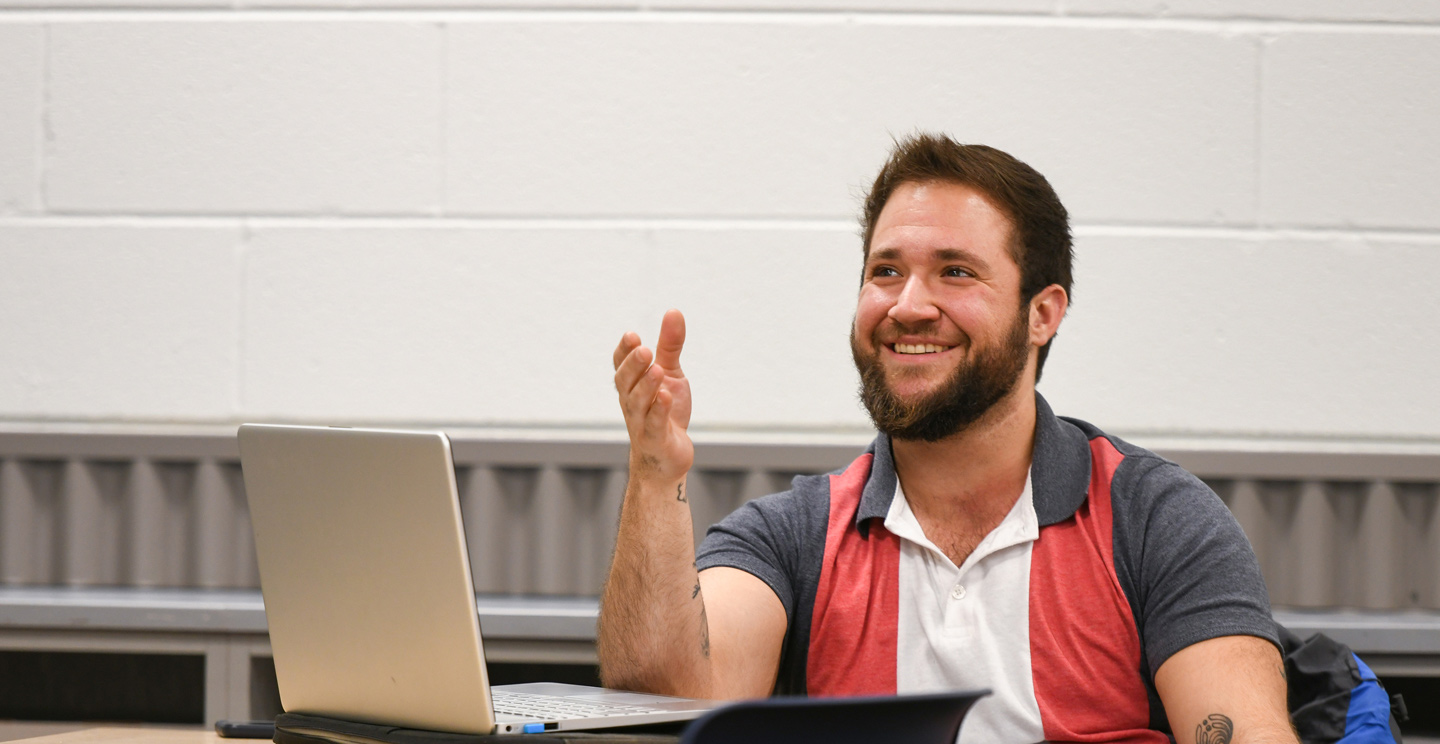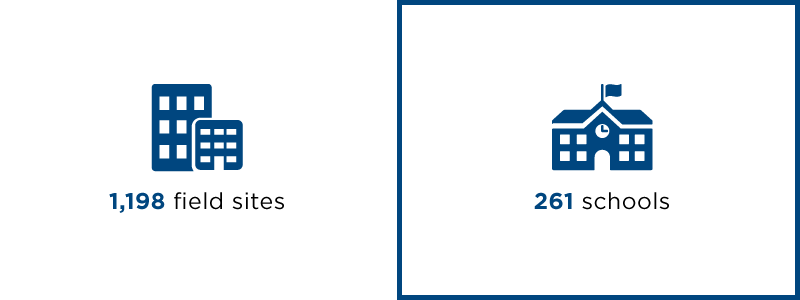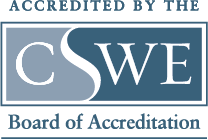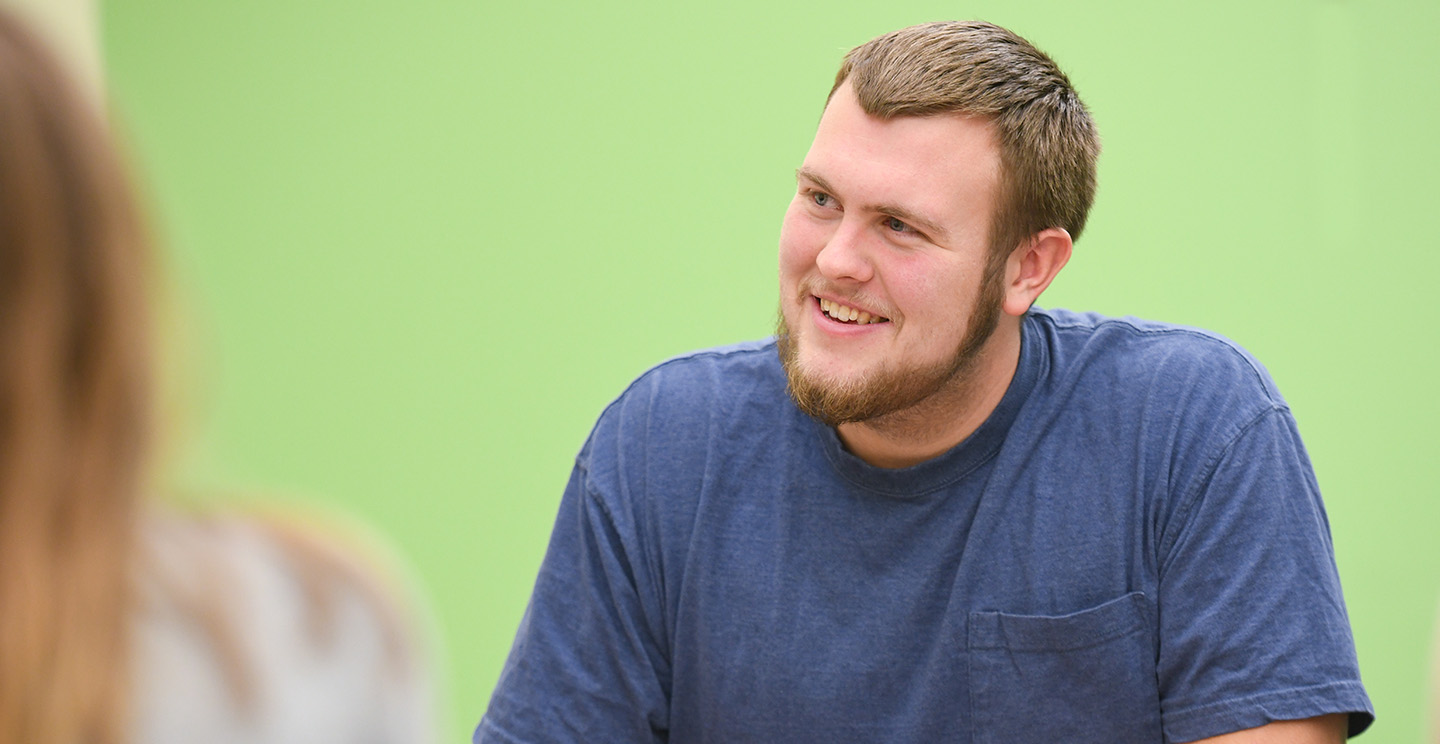Social Work (MSW Traditional or Advanced Standing)

Why an MSW program?
Do you want to serve populations in need and contribute to improving lives? A Master of Social Work (MSW) program will prepare you for the important work of empowering individuals, families, and communities. Social workers help people solve and cope with problems. They have a unique combination of intelligence and emotional strength. They care about human dignity and social justice, and work to make the world a better place.
Social work is a challenging, dynamic, high-growth profession. It encompasses a wide range of practices, including child welfare, addiction treatment, mental health, advocacy, aging, family services, education, community organizing, and public policy. A master’s degree can help social workers advance in their career pathway. It can lead to a job as a case worker for mental health agencies, homeless shelters, disability resource centers, domestic violence shelter services, immigration and refugee resettlement services, senior citizen support agencies, and more.
At Aurora University, our social work programs are recognized among the best in the region. AU has been training social workers since the 1970s. Our social work roots stretch back to a small human services college in Chicago’s Hyde Park neighborhood founded during the Great Depression.
Flexible and Customized Format
In AU’s Master of Social Work program, you will receive a strong academic foundation based in clinical social work practice, as well as specialized study. Our program is flexible and designed to fit into your busy life with fall, spring, and summer starts. And you can select from a variety of daytime, evening, and online course offerings.
AU is also an early adopter of employment-based internships, meaning you can use your current employer for your fieldwork and/or internship experience. In fact, over 50 organizations are partnering with AU so that you can work full time while earning field credit.
You can also pursue the AU online MSW and online MSW Advanced Standing degree programs.
There is no greater joy nor greater reward than to make a fundamental difference in someone’s life.Mary Rose McGeady
Our faculty are dedicated to helping you find your place within the social work profession. We also offer a variety of tracks that strengthen your knowledge in specific areas of the field.
In AU's MSW program, on-campus and online students can participate in the following curriculum tracks. Note, some on-campus students may be required to complete online coursework depending on their chosen track.
Tracks Leading to External Certifications or Licenses
- Addictions prepares you to work with individuals and families impacted by substance use within a primary substance use disorder treatment setting. The coursework focuses on various aspects of substance use, challenging your biases regarding impacted populations, and learning specific clinical skills to help the sub-populations, including those impacted by substance use and mental health disorders. Within this clinical concentration, you will complete an internship at an approved substance use disorder treatment site. Upon successful completion of this track, you will be eligible to take the Certified Alcohol and Other Drug Counselor (CADC) examination offered through the Illinois Certification Board. Further opportunity exists to earn additional credentials such as the Co-Occurring Substance Use and Mental Health Disorder Professional (CODP I).
- Child Welfare focuses on addressing the issues surrounding families facing turmoil, protecting children from abuse and neglect, working with biological parents
to reunite families, and finding permanent placements for those who cannot safely return to their homes. Internship experiences include positions in case management, shelter care services, intact family services, foster care, adoption, and therapeutic foster care services. Students will complete three electives and a child welfare specific internship. After successful completion of this track, you will be eligible to take the tests required, such as the Illinois Child Welfare Licensing Exam, to work in the child welfare field in Illinois. - School Social Work prepares you to address the social, emotional, and behavioral concerns of students, provide resources to families, assist with student academic performance, and collaborate with school staff to improve the well-being of students and their families within the school setting. As a school social worker, you will have the knowledge and skills to provide preventive and interventional services for students from pre-K through the age of 21. The program is approved by the Illinois State Board of Education, and upon successful completion of the track, you will be eligible to apply for an Illinois Professional Educator License (PEL) with School Social Worker Endorsement. This track includes coursework on children with exceptionalities, reading strategies for students, and school social work policy. It also requires participation in a school field placement.
Additional Tracks Offered
- Forensics prepares students to use legal expertise to work in the social work field. Simply defined, forensic social work means integration of social work and legal fields. The coursework focuses on educating students in forensic social work practice and theory. Students can utilize their specialized knowledge of this field to work in a variety of settings. Some examples include: correctional settings (jails, prisons, reentry programs, community supervision such as probation and parole), police departments and other law enforcement agencies, FBI, court systems (legal advocates, clinicians, treatment providers, policy development), child advocacy centers, domestic violence programs, survivor assistance programs (human trafficking, crime victims), etc. Opportunities are broad and available at micro, mezzo, and macro levels.
- Generalist students take electives from several areas of interest for a holistic approach to mental health and community advocacy. The need for skilled generalist practitioners in the mental health profession area is significant and expected to continue to grow as therapists, case workers, and intake social workers are in demand. The Generalist track prepares students to enter the workforce and function with other professionals to address the clinical needs of clients in varying contexts.
- Gerontology focuses on the rapidly growing and ever-changing field of gerontology, and the myriad of roles for social workers in this field. In this track, you will learn to assess and treat older adults in a variety of service agencies including assisted-living facilities, nursing homes, hospice care settings, hospitals, and senior living homes.
- Health Care exposes you to the field of health care in the United States and the various roles available for social workers. The track provides a basic understanding of the medical field and its terminology, the complexities of brief and chronic illness and respective treatments, ethical considerations, insurance issues, and public policy. Upon completion, you will be able to recognize health disparities and work toward the equitable and fair provision of services to all populations.
- Leadership Administration exposes students to the macro level social work perspectives as well as an administrative perspective through MSW and MBA courses. The Leadership Administration track will prepare you for administrative roles in social work and human services.
- Military and Veteran Social Work prepares students to serve active duty and veteran military members and make a positive impact in their lives through specialized coursework that explores topics including military culture, customs, traditions, and clinical social work practice with military and veteran populations. The track will prepare you for careers in contexts like the Department of Veterans Affairs, personnel or case management, and counseling.

annual median salary for social workers
2024-2034 projected job growth rate
The MSW program is accredited by the Council on Social Work Education’s Board of Accreditation.
Accreditation of a baccalaureate or master’s social work program by the Council on Social Work Education’s Board of Accreditation indicates that it meets or exceeds criteria for the assessment of program quality evaluated through a peer review process. An accredited program has sufficient resources to meet its mission and goals and the Board of Accreditation has verified that it demonstrates compliance with all sections of the Educational Policy and Accreditation Standards.
Accreditation applies to all program sites and program delivery methods of an accredited program. Accreditation provides reasonable assurance about the quality of the program and the competence of students graduating from the program.
This accreditation enables students to apply for the state licensure exam in Illinois.
Traditional MSW Program: 60 semester hours
- Open to all students with an undergraduate degree, even if they have had no prior social work coursework
- Two-year and three-year options
- Also available as an online MSW
Advanced Standing MSW Program: 30 semester hours
- Open to students who have an undergraduate degree in social work from a CSWE-accredited institution within the past five years
- One-year and two-year options
- Also available as an online MSW Advanced Standing
- Human behavior
- Research
- Social welfare policy
- Social work practice
Corporations, school districts, and other organizations are finding ways to help alleviate higher levels of stress and anxiety by hiring social workers to make a difference. At AU, your professors will help you choose the track that is right for you so you are ready to start work when you graduate.
Career possibilities
- Executive director of a social service agency
- Forensic social worker
- Hospice social worker
- International social worker
- Mental health social worker
- Occupational social worker
- Policy analyst
- Private practice therapist
- Program manager
- School social worker
- Substance abuse counselor
Where our students intern and graduates work
- Adolescent Growth
- Association for Individual Development
- Breaking Free
- Communities In Schools
- Community Mental Health Board of Oak Park Township
- Family Shelter Service
- Gateway Foundation
- Hesed House
- Jennings Terrace
- Joliet Area Community Hospice
- Little Friends Inc.
- Lutheran Social Services
- Miller Rehabilitation Center
- Mooseheart
- Northwestern Medicine
- Parker Nursing and Rehab
- Phoenix Health Program
- Pioneer Center for Human Services
- Senior Services Association
- State Representative’s office
- Stepping Stone Treatment Center
- West Aurora High School
- World Relief
- YMCA


